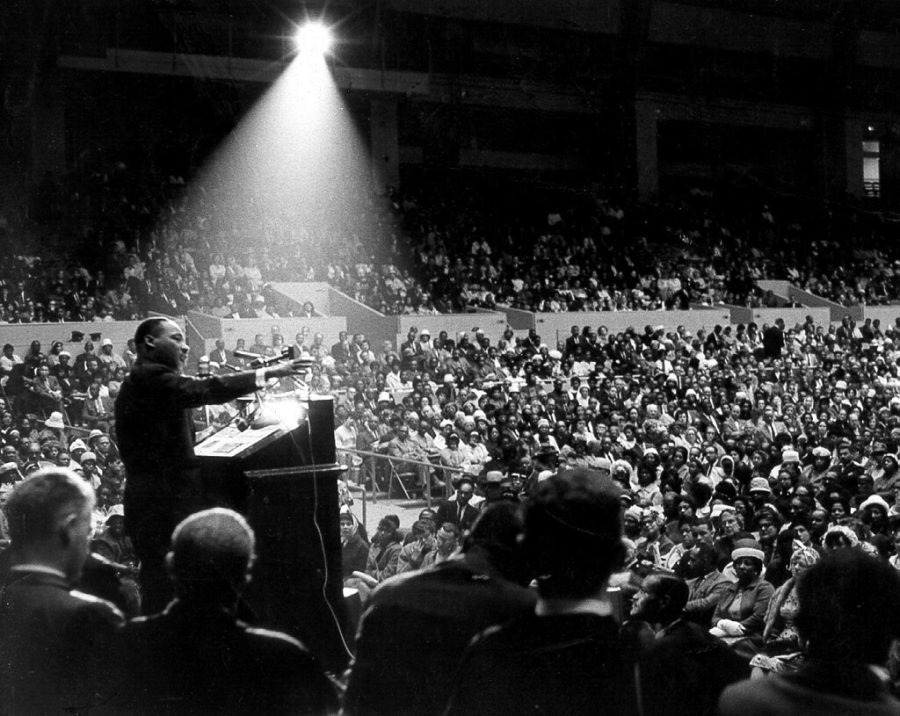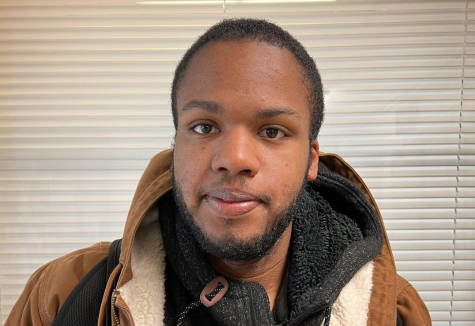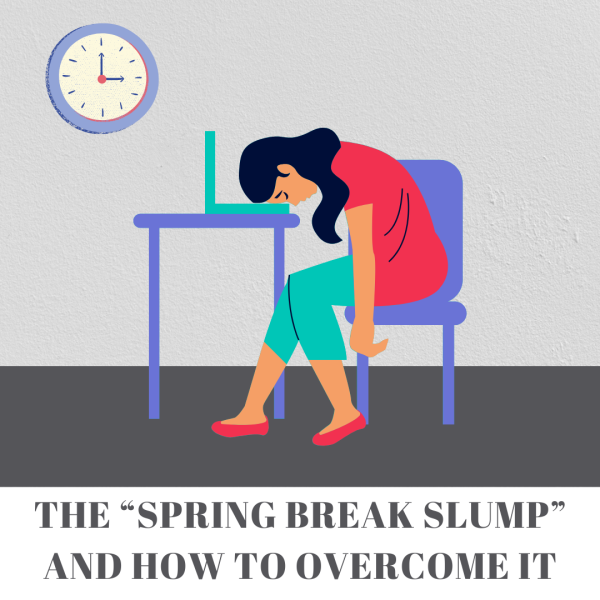A Brief History of MLK’s Battle for Voting Rights
January 19, 2022
Voting rights is a huge issue in America. It’s the deciding factor between how things are done in this country, from implementing laws, leaders and even the future of the country as a whole. It doesn’t matter where you are on party lines, the right to vote should be respected. No one knew that more than Martin Luther King Jr, which is why he advocated for them through his civil rights career.
Martin Luther King Jr. was a Civil Rights leader, best known for leading the charge in the fight for equality amongst minorities. He led many civil rights marches and was arrested many times for his troubles. Hate calls, death threats, bombings, beatings, Dr.King went through it all in the name of fighting for equality through peace and the power of speaking. One of the most important battles he ever fought was the fight over voting rights for African Americans.
When the civil war ended, the democrats of the jim-crow era saw it as unfortunate that African Americans would have a say in the political spectrum. This led to some pretty crafty ideas to keep the voting process “pure”. Voting disenfranchisement became the name of the game. This is the act of creating roadblocks or barriers of any kind to discourage or prevent a person or group of people from voting.
To help enforce these methods, laws were put in place such as the introduction of literacy tests and poll taxes. These laws knowingly exploited the fact that many African American families would not have access to the money or educational resources needed to participate, due to their slave and impoverished roots.
Of course institutions within southern states would also be implemented to help ensure that this tide wouldn’t change so easily. Leaving the black community to play a game that was rigged against them from the start.
In 1965, Martin Luther King Jr. led the charge on this front during his tenure in the Civil Rights Movement directly into Selma. Despite being a pacifist war, the results were pretty bloody with the Klu Klux Klans working double-time to instill intimidation and fear into the hearts of African Americans, to “keep them in line”.
Another one of the biggest highlights of the campaign was bloody Sunday, the day State troopers and county lynch mobs used tear gas and billy clubs to brutalize peaceful protests during the Selma march. The Klu Klux Klan at this time also added fuel to the already increasing wildfire by partaking in actions like the bombing of black children, the castrating of black men and even the act of ripping a 14-year-old, black boy’s eye out before shooting him to death.
Ironically, these radical actions would backfire. After all, their actions forced the white community to see how awful their prejudices could be if they let them blind them completely. Seeing actions like these every day on the news, while watching a group of people just trying to fight for their right to live, made it hard not to sympathize with the Civil Rights movement. Thus, support for their cause by white people increased substantially. While a lot of work still needed to be done socially, at least the problem was being diagnosed.
After over 30,000 arrests, countless deaths, and much struggle, hope was finally achieved. Dr. King’s powerful leadership and the protestors’ tenacity gained the sympathies of President Lyndon B. Johnson, who would sign the Voting Rights Act of 1965, a bill that prevented discrimination against African Americans in the voting booths. Southern states found loopholes around this, or would just flat out ignore the laws altogether. At least the laws gave African Americans a legal stance if they could afford a good lawyer.
People often like to think that because segregation on the surface is over, there are no more battles to fight. The truth is that now it just means we can fight these battles together. Politicians trying to suppress voters was not an action that just went away, the practices are still put in place today. Politicians are increasingly attempting the practice of gerrymandering, that allows the manipulation of a voting district to favor the political party in question.
If that wasn’t enough, voting laws have been getting stricter nation-wide around the country to fight the idea of voter fraud. The allegation of voter fraud as a non-issue isn’t made without merit either. A study from the New York University School of law even found that given the tiny incident rate for voter impersonation fraud, it is more likely that an American would be struck by lightning than impersonate another voter at the polls.
Yet even with this knowledge, in states like Georgia, voting laws have been increased to make it even harder to vote in fear of “mass voting fraud”. Recently to remedy this, the Freedom To Vote Act has been discussed among the Democratic Party to help make voting easier, turning around the new restrictions put in place last year and even strengthening the Voting Rights Act of 1965. In many ways, this bill is a sequel to one of the many fights MLK died for.
We all like to remember MLK for his battle against racism. But that battle was a lot more complex than what we give it credit for. Racism was more than just the struggle between black and white people. It started as a systemic tool to keep middle and poor class workers in line so the upper class could get rich off cheap labor.
The main surface struggle of African Americans becoming equal may have taken way too long to be resolved, but that’s okay. Thanks to leaders like Martin Luther King Jr., black and white communities can be friends with each other. We can go to integrated schools and cry over that ending in Spiderman: No Way Home together.
And if we put in the effort, maybe we can finish fighting to secure our voting rights too. Regardless of where you are on the political spectrum, Americans should always fight for the constitutional rights of their fellow neighbors, even if we don’t always agree with each other at the end of the day.
“The end we seek is a society at peace with itself, a society that can live with its conscience. And that will be a day not of the white man, not of the black man. That will be the day of man as man.”-Martin Luther King Jr














Mike Chastain • Feb 11, 2022 at 3:03 pm
There is a dishonest and therefore not provable claim in the article. It says, “in states like Georgia, voting laws have been increased to make it even harder to vote in fear of “mass voting fraud.” FACT: It is very easy to vote in Georgia if one wants to vote. There are no burdensome barriers to voting legally in Georgia. Stacie Abrams is actually promoting this lie and getting rich by convincing people who won’t check that their votes aren’t wanted and are being blocked because we are a certain color. If you can legally drive a car, you will have zero trouble voting. If you have a legal student ID from GSU, you can will have no trouble voting. Much of this claim is a scam with the ulterior motive to cause division and generate hard feelings among us.
Michael Humber • Jan 20, 2022 at 4:51 pm
Actually, I am in favor of permitting only people who own property and/or pay income taxes to vote. Think about it this way: if you were considering changing your major, would you consult with people who had a decent income, owned assets and were considered successful or would you seek advice from people who lived off governmental handouts, had no education or assets and were basically failures. Can we trust the latter people to do what is best for the country and to have the capability to make an informed decision?